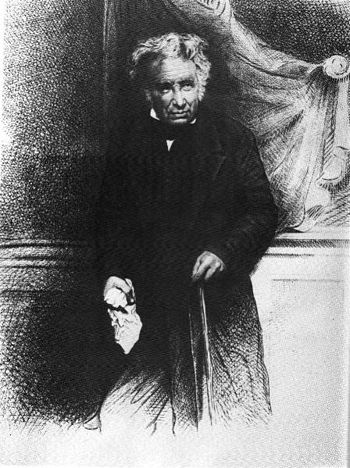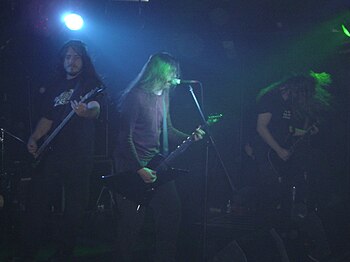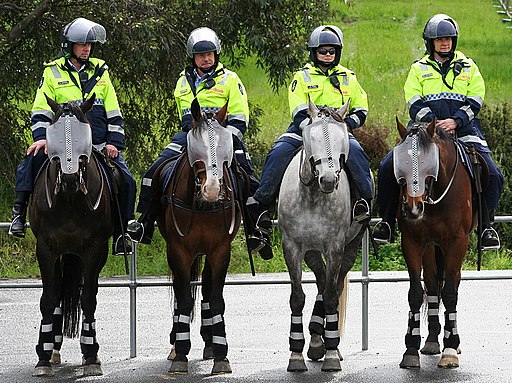8.31.2014
How to Win Any Argument About Social Justice
See more on Know Your Meme
I accept that I may be wrong about this, but I have yet to be convinced that this sort of behavior has little to do with meaningful social justice activism or that it contributes to the sort of change many of us would like to see. The behaviors described in the graphic should be rare among freethinkers and skeptics, including those of us who are interested in social justice.
8.28.2014
Separation of Church and State is a Social Justice Issue
 |
| Rally for social justice, Beersheba, Israel, Aug 13 2001 (Photo credit: Wikipedia) |
We don't usually think of separation of church and state as a social justice issue or regard church-state activism as a form of social justice activism. I think this is because when most of us in the U.S. think about church-state activism, we think about efforts to remove nativity scenes and Ten Commandments monuments from government buildings, return the Pledge of Allegiance to the original pre-god language, remove the god references from our currency, persuade our elected officials to stop offering sectarian prayers to open government meetings, and the like. The connection between these efforts and social justice may not be immediately apparent. And yet, I think it makes sense to think of efforts to defend the separation of church and state as a social justice issue.
The cumulative impact of the sort of church-state violations I mentioned above is that they serve to alienate non-religious persons, assuring that we continue to be marginalized. These violations collectively foster an environment of anti-atheist bigotry and discrimination. When government is not neutral on matters of religion but instead opts to promote god belief in general or Christian beliefs in particular, the non-religious lose out. It isn't just a matter of our government no longer representing us; we receive the message that we are unwanted and even despised. Negative public attitudes toward us are normalized and become socially acceptable. It is bad enough that many of our neighbors hate us; when our government behaves like this, we must begin to worry about things as basic as our safety.
8.25.2014
Is Separation of Church and State Still Relevant?
| Mouzinho da Silveira, whose influence during the post-War era would result in changes to the economy, the separation of church and state and the reorganization of municipalities (Photo credit: Wikipedia) |
Why do I ask? From what I see on the Internet these days, many atheists would rather talk about Ferguson, ice buckets, Gaza, ISIS, transphobia and trans-exclusionary radical feminists (TERFs), whatever Richard Dawkins recently said on Twitter, who said what about various bloggers at the Slyme Pit, and a host of other subjects. To be clear, I'm not saying that there isn't still plenty of church-state content out there. Church-state violations are happening daily, and Hemant Mehta (Friendly Atheist), as just one example, continues to do an outstanding job of covering them. But it seems like I'm seeing less of this content being shared on social media than many of these other topics.
We can certainly have many interests and be involved in activism in multiple areas simultaneously. The fact that many seem captivated by these other topics does not mean that they are uninterested in church-state activism. But since it seems to receive less attention than it used to and less attention than these other subjects, I wonder whether separation of church and state is still as high a priority for most atheists as it once seemed to be.
8.24.2014
Christians Disregard Jesus to Pray Publicly
There are many parts of the Christian bible that are somewhat ambiguous, unclear, or inconsistent. This reality is accepted by many Christians. Other parts of the Christian bible seem quite clear. Take Matthew 6:5-7 for example:
5. And when thou prayest, thou shalt not be as the hypocrites: for they love to pray standing in the synagogues and in the corners of the streets, that they may be seen of men. Verily I say unto you, They have their reward.This passage describes how hypocrites pray in public "that they may be seen" and admonishes the audience not to pray like this. Instead, the audience is encouraged to pray in private. Private prayer is good; public prayer is bad. Seems pretty clear, doesn't it? So why do so many Christians in the United States ignore it and engage in public prayer?
6. But thou, when thou prayest, enter into thy closet, and when thou hast shut thy door, pray to thy Father which is in secret; and thy Father which seeth in secret shall reward thee openly.
7. But when ye pray, use not vain repetitions, as the heathen: for they think that they shall be heard for their much speaking.
8.21.2014
Confronting Our Own Hypocrisy and Repudiating Bad Behavior
| Hypocrisy at Glasgow Cathouse (Photo credit: Wikipedia) |
When we look at religious believers, I have no doubt that most of us find hypocrisy widespread, relevant, and off-putting. I cannot say that hypocrisy made me an atheist; skepticism and lack of evidence did that. I can say that religious hypocrisy helped to shape by attitudes toward religious belief. I have no reason to think that hypocrisy among atheists will not shape attitudes toward atheism. But I am not looking at this primarily as a public relations issue. My main concern is not with how religious believers may view us; I am more concerned with how our hypocrisy limits our effectiveness and our attractiveness to other atheists.
As I wrote previously,
In the last six months, I have met a few atheists online who went so far as to say that they no longer identify themselves as atheists because they do not want to be associated with the garbage they have seen coming from other atheists online.
8.20.2014
Political Extremism is Part of Our History
| The western front of the United States Capitol. The Neoclassical style building is located in Washington, D.C., on top of Capitol Hill at the east end of the National Mall. The Capitol was designated a National Historic Landmark in 1960. (Photo credit: Wikipedia) |
This all seems to be getting worse, and it is likely part of why voter turnout and political engagement continue to decline. Increasing numbers of people have opted out of the political process in a sort of learned helplessness. If what I do makes no difference, why bother?
In a recent post at The Daily Beast, John Avlon, author of Wingnuts: Extremism in the Age of Obama, reminds us that much of what we are experiencing is not new and not necessarily insurmountable. We've been here before.
American political history has been marked by periodic eruptions of the “heated exaggeration, auspiciousness, and conspiratorial fantasy” that Richard Hofstadter famously characterized as “the paranoid style in American politics.” Wingnuts have masqueraded under different names and causes at different times, but they have always been committed to an “us against them” framing of domestic debates while inflaming group hatred in the name of politics and alleged principle. They prey on fear and ignorance.
8.19.2014
The Optics of Community Volunteerism
 |
| The Student Volunteer Army after the 2011 Christchurch earthquake. (Photo credit: Wikipedia) |
Maybe I need to make a conscious effort to reframe the situation. I could tell myself that I'm still doing good because it is the right thing to do but that I'm reaping an additional benefit by showing people that atheists do good things too. My primary motive would be unchanged; I'd simply be thinking a bit more broadly about the impact of my actions. It feels unnatural for me to think in such terms, but that may just be because I have resisted doing so for so long.
What made me think about this was this post from Religion News Service about how church volunteers are cleaning up after the protests in Ferguson. This looks good for them. The post hints that not everyone cleaning up was religious (e.g., "The majority arrived as part of the faithful"), but the focus is on those who were. The image of church volunteers coming together to help their community is a positive one. I could easily imagine people hearing about it and thinking, "I'd like to be part of such a group."
8.18.2014
Atheist Finds Acceptance at Episcopal Church
| Trinity Parish Church (Episcopal), First Hill, Seattle, Washington. Erected 1902; listed on the National Register of Historic Places. (Photo credit: Wikipedia) |
To understand why this might be the case, it is helpful to recognize that some atheists have had negative experiences with religion. In addition, many of us believe that religious institutions and/or religious belief have been detrimental to human progress. For many atheists, attending religious services at a church would be a waste of time at best and a way of contributing to a destructive institution at worst. For some of us, it might even involve a sense of self-betrayal.
Of course, we atheists are an incredibly diverse group, and it is not hard to find exceptions. Some atheists not only enjoy attending church services but wish they could do so more regularly.
Take this recent post by Snowbrush as an example. He describes attending mass at an Episcopal church and thoroughly enjoying the experience.
It’s not just church I need, it’s the Episcopal Church, and not just any Episcopal Church, but a high church with incense, candles, holy water, altar bells, formality, and solemnity. I can put my heart into every word I say in such a setting without believing them literally. They possess me. Their beauty, their antiquity, the closeness I feel to those who are saying the same words and making the same gestures, is no less strange and beautiful to me than anything that’s strange and beautiful, whether I’m among people or in nature, whether I’m straight or on drugs. I don’t know how anyone could love high church more than I, or approach it more joyfully.
8.13.2014
PZ Myers Does Not Speak For Us
| Electronic red megaphone on stand. (Photo credit: Wikipedia) |
Atheists routinely criticize religious moderates for not doing more about their extremist colleagues. What is it that we expect them to do? For starters, we want them to speak out. We want them to repudiate the behavior of the religious extremists. We want them to make it clear that the extremists do not speak for them.
One implication of this is that we must be willing to do the same, especially when individuals with high profiles in the atheist community make serious errors. We do not need to try to destroy such individuals or even to shun them; however, there may be times when it is necessary for us to make it clear that they do not speak for us. Yesterday's post by PZ Myers (Freezepage link) is one such time, and many atheists have been using their platforms to repudiate what PZ said. Here are a few noteworthy examples:
8.12.2014
Claims of Offense From the Religious vs. Claims of Offense From Atheists
| A sign posted by the Connecticut Valley Atheists in Rockville's Central Park in December 2007. (Photo credit: Wikipedia) |
I don't think I've said anything controversial yet. In fact, I suspect that what I wrote above would find almost universal agreement among atheists. The anti-theists will certainly agree; many of them go out of their way to mock religious belief and may even hope to offend religious believers. I suspect that even those atheists and humanists who are fond of interfaith dialogue and encourage atheists and humanists to work alongside religious believers to pursue shared goals would agree that we should not withhold criticism of religion simply because it may offend some religious believers.
As clear as most atheists seem to be that we should not let claims of offense-taking from religious believers stifle our criticism of religious belief, we are far less clear about this when it comes to other groups. We have let claims of offense-taking from many different groups of atheists limit our work. The most recent example of which I am aware involved Hemant Mehta's (Friendly Atheist) decision to shelve a book project after receiving complaints from atheists about the subject matter. This is certainly not the first time this has happened, and it will not be the last.
8.11.2014
What Does It Mean To Be Secular?
In the briefest possible sense, I think we can agree that secular means non-religious. Someone who is secular, whatever else he or she may be, is not religious.
In a recent post on The Secular Life, Dr. Phil Zuckerman drew upon the social sciences to unpack what being non-religious means in this context:
So to be secular means that 1) a person does not believe in supernatural beings, entities, or realms, 2) a person does not engage in religious behaviors, and 3) a person does not identify as religious and is not a member of a religious community.In expanding upon #1, Dr. Zuckerman notes that being secular "is to maintain a naturalistic worldview in which belief in anything is always proportioned to the evidence available." I like this because it gives us a sense of what a secular person does believe. With so many religious believers telling us that we don't believe anything, this strikes me as important.
Later in the same post, Dr. Zuckerman almost seems to contradict #2 of this definition by writing:
Of course, many secular people -- despite their lack of religious beliefs -- do engage in at least some religious rituals.If being secular entails not engaging in religious behaviors, I'm not sure it makes sense to suggest that many secular people participate in religious rituals. Then again, I suspect that his point is that secular individuals do not participate in religious rituals for religious reasons. If this is accurate, I'd suggest modifying #2 of the definition to read "2) a person does not engage in religious behaviors for religious reasons..." This would cover the secular person who attends church (i.e., a religious behavior) to appease a family member or for other non-religious reasons.
What do you think? Does this brief definition adequately capture what it means to be secular?
8.05.2014
Purging the Atheist Community of Content We Don't Like
- 25 of the videos are outstanding, genuinely good atheist content most of us would enjoy.
- 25 of them are truly vile, containing a mixture of hurtful rape jokes and blatant misogyny.
- The rest are what we might consider average atheist videos, some better than others but none awful or outstanding.
There are a couple of interesting questions we might consider at this point:
- Should the presence of the 25 vile videos obliterate the value of the 25 really good ones?
- Should one should condemn the video blogger's entire body of work on the basis of the 25 vile videos?
8.04.2014
Policing the Atheist Community
I have used the phrase "atheist community" many times to refer to all of us who identify as atheists. A couple of years ago, I wrote:
When I refer to the atheist community, I am using the term in a global way to characterize all of us who identify as atheists. If you identify yourself as an atheist, you are part of the atheist community. This is true even if you never engage in activism, meet with other atheists, or do anything whatsoever to call attention to your atheism.I noted that the only real requirement for entry into the atheist community is that one identify as an atheist. I recognized that while most of us have at least a few things in common besides atheism, there will always be exceptions. It doesn't sound like much of a community, does it? I've found it to be a useful term, much less cumbersome than "atheists who identify themselves as atheists" would be, but I acknowledge that it is flawed in some important ways.
One of the problems with the term is that "atheist community" makes it sound like we resemble other communities in ways we do not. We have no structure. There are no recognized leaders. It has never been terribly clear that there are people occupying different roles or performing different functions. And what of shared values? Even the few goals that are shared my many of us are far from universal. There are no rules in this community that are specific to it, not even universally accepted minimum standards of behavior.









